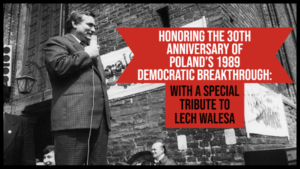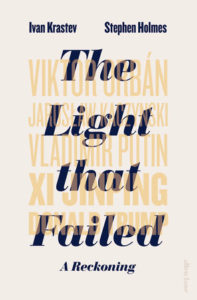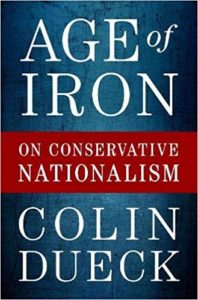 Viewed from today’s perspective, it seems clear that liberalism and nationalism are enemies. But that was not always the case. As recently as 1989, liberalism and nationalism were allies in causing the collapse of the Soviet empire. In countries such as Poland and Hungary the demand for national self-determination was closely linked to demands for liberal freedoms, notes FT analyst Gideon Rachman:
Viewed from today’s perspective, it seems clear that liberalism and nationalism are enemies. But that was not always the case. As recently as 1989, liberalism and nationalism were allies in causing the collapse of the Soviet empire. In countries such as Poland and Hungary the demand for national self-determination was closely linked to demands for liberal freedoms, notes FT analyst Gideon Rachman:
Thirty years later, some of the new nationalist governments in central Europe now see liberalism as the enemy of national self-determination. That is partly because liberal internationalism has attempted to embed some of its central ideas into international laws and conventions — for example the rights of refugees, the independence of the courts or the freedom to trade and invest.
 For conservative nationalists like Viktor Orban or Jaroslaw Kaczynski, the leader of Poland’s governing Law and Justice party, this institutionalisation of liberalism is unacceptable because it constrains the ability of national governments to make radical changes. As Ivan Krastev [a contributor to the National Endowment for Democracy’s Journal of Democracy] and Stephen Holmes explain in a recent book, The Light That Failed, the central European nationalists reject liberal democracy because it “offers provisional victories only. It denies the electoral winners the chance for a full and final victory.” RTWT
For conservative nationalists like Viktor Orban or Jaroslaw Kaczynski, the leader of Poland’s governing Law and Justice party, this institutionalisation of liberalism is unacceptable because it constrains the ability of national governments to make radical changes. As Ivan Krastev [a contributor to the National Endowment for Democracy’s Journal of Democracy] and Stephen Holmes explain in a recent book, The Light That Failed, the central European nationalists reject liberal democracy because it “offers provisional victories only. It denies the electoral winners the chance for a full and final victory.” RTWT
“The Wilsonian mindset encourages the belief that there is no great difference between authoritarian nationalism and democratic versions. But there is all the difference in the world,” argues George Mason University professor Colin Dueck. “The totalitarian powers of the twentieth century would not have been undermined and defeated without the power of democratic nationalism arising in the United States.”
 in his latest book, Age of Iron: On Conservative Nationalism, Dueck dispels the notion that Donald Trump’s foreign policy is a historical aberration, arguing instead that the president’s worldview is part of a long-held tradition of conservative nationalist foreign policy, the German Marshall Fund of the United States adds. GMF Executive Vice President Derek Chollet will moderate a discussion to examine whether conservative nationalism is compatible with international engagement, evaluate the current state of GOP foreign policy, and consider whether Trump’s approach to global affairs will endure after he leaves office.
in his latest book, Age of Iron: On Conservative Nationalism, Dueck dispels the notion that Donald Trump’s foreign policy is a historical aberration, arguing instead that the president’s worldview is part of a long-held tradition of conservative nationalist foreign policy, the German Marshall Fund of the United States adds. GMF Executive Vice President Derek Chollet will moderate a discussion to examine whether conservative nationalism is compatible with international engagement, evaluate the current state of GOP foreign policy, and consider whether Trump’s approach to global affairs will endure after he leaves office.
Tuesday, December 17, 2019 | 11:00 a.m. – 12:15 p.m.
In Foreign Affairs, Kanchan Chandra looks at the roots of Hindu nationalism’s triumph in India.







